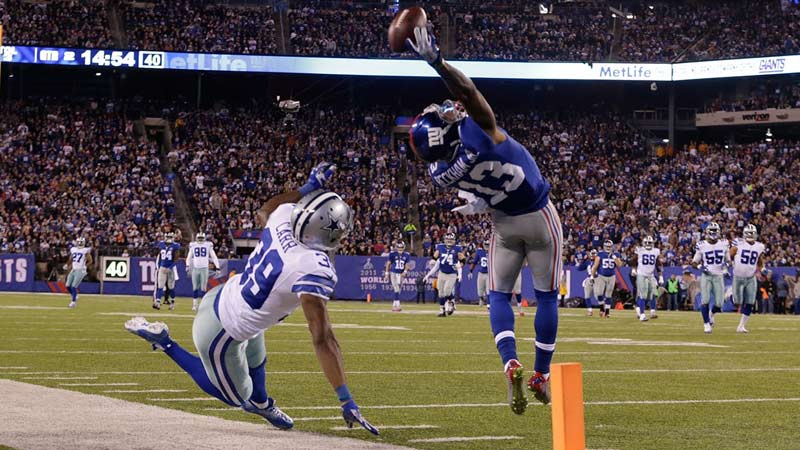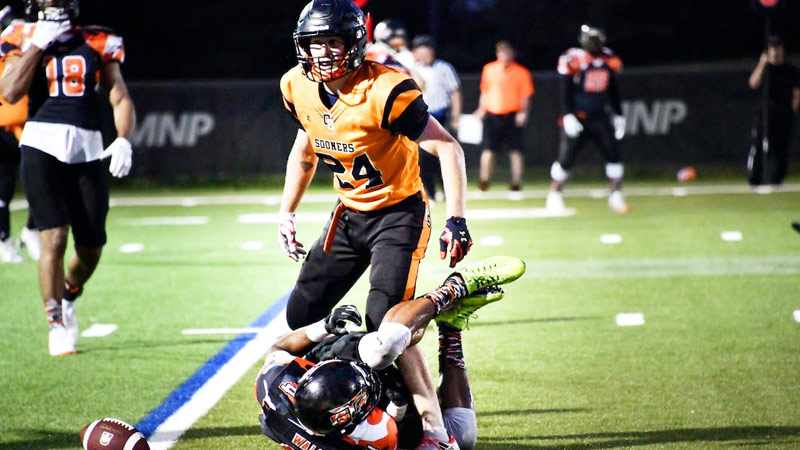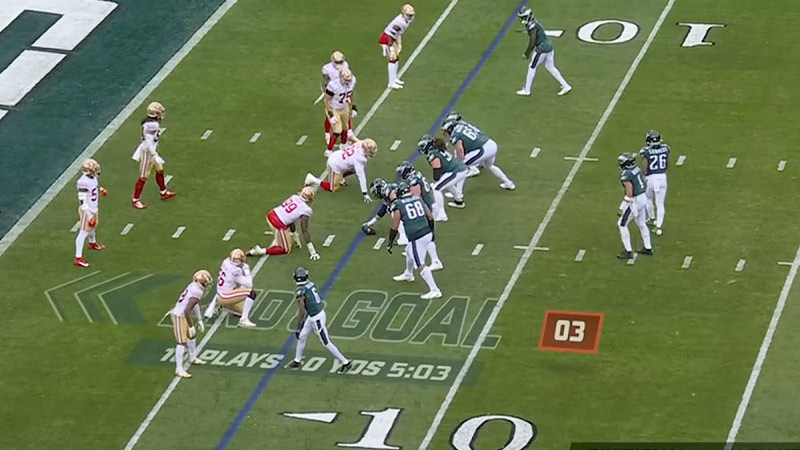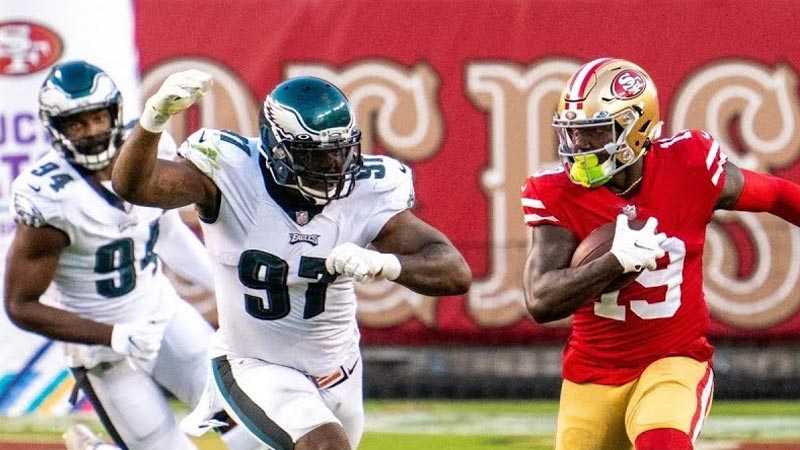The NFL playoffs are an exhilarating culmination of the football season, where the league’s top teams battle it out on the gridiron in a quest for Super Bowl glory. However, understanding the NFL playoff rules can be as complex as executing a perfectly timed touchdown pass.
To help you navigate the playoffs with confidence, we’ve put together this comprehensive guide that delves into the intricacies of NFL playoff rules. In this blog post, we will break down the key components of the NFL playoff system.
From how teams are seeded based on their regular-season performance to the nail-biting overtime rules that can determine a winner, we’ll leave no stone unturned.
We’ll also explore the impact of COVID-19 protocols on the playoffs and the roster rules that make the postseason unique.
So, whether you’re a die-hard fan or a casual observer, join us as we unravel the playbook of NFL playoff rules and regulations, providing you with a deeper understanding of the game we all love.
What Is the NFL Playoff?

The NFL (National Football League) playoffs are a postseason tournament held at the end of the NFL regular season. They determine which teams will ultimately compete in the Super Bowl, which is the championship game of American professional football.
The NFL playoffs typically begin in January and culminate with the Super Bowl in early February.
Here’s an overview of how the NFL playoffs work:
Qualification
The NFL consists of 32 teams divided into two conferences: the American Football Conference (AFC) and the National Football Conference (NFC). Each conference is further divided into four divisions.
At the end of the regular season, the teams with the best records in each division, along with a few wildcard teams, qualify for the playoffs.
Seeding
Teams are seeded based on their regular-season records. The division winners in each conference are seeded 1 to 4, with the three wildcard teams in each conference seeded 5 to 7.
The top seed in each conference earns a bye week, advancing directly to the Divisional Round of the playoffs.
Format
The NFL playoffs consist of four rounds: the Wild Card Round, the Divisional Round, the Conference Championship games, and the Super Bowl.
The Wild Card Round features three games in each conference, with the lower-seeded teams playing on the road against the higher-seeded teams. The winners advance to the Divisional Round, where they face the top seeds.
The winners of the Divisional Round games then compete in the Conference Championship games, one for the AFC and one for the NFC.
The winners of those games become the conference champions and meet in the Super Bowl.
Single-Elimination
The NFL playoffs are single-elimination, meaning that teams that lose in any round are eliminated from the tournament, and only the winners continue to the next round.
Overtime
Overtime rules are used in playoff games if the score is tied at the end of regulation.
Playoff games continue in overtime until a winner is determined, with each team getting at least one possession unless the first possession results in a touchdown.
Home Field Advantage
Home-field advantage throughout the playoffs is awarded to the team with the higher seed, which includes hosting rights for all rounds, including the Super Bowl if their conference wins it.
The ultimate goal for NFL teams is to advance through the playoffs and win the Super Bowl, which is one of the most-watched sporting events in the United States and attracts a global audience.
Winning the Super Bowl is considered the pinnacle of achievement in American football.
List of Football NFL Playoff Rules

The NFL (National Football League) playoff rules can be quite extensive, as they cover various aspects of the postseason, including seeding, tiebreakers, and game format. Here’s a list of some key NFL playoff rules:
Playoff Seeding
Playoff seeding in the NFL is a crucial aspect of the postseason structure. It determines which teams have the advantage of hosting games and which teams will receive byes.
The top four seeds in each conference are reserved for division winners.
The seeding is determined by regular-season records, with tiebreakers applied when necessary. Penalties for violating seeding rules typically involve fines or loss of draft picks.
Intentionally losing games to secure a lower seed, also known as “tanking,” can result in severe consequences, including loss of draft picks and financial penalties.
Wild Card Round
The NFL Wild Card Round is the first step in the playoffs, featuring three games in each conference. The lower-seeded division winners host the higher-seeded wild card teams.
A significant rule is that a division winner with a worse record than a wild card team cannot host a playoff game. This ensures fairness and rewards teams with superior records.
Penalties for violating this rule may involve fines and even potential forfeitures of home-field advantage. The league takes this rule seriously to maintain the integrity of the playoff format.
Byes
The bye week is a coveted advantage in the NFL playoffs, granting the top seed in each conference an automatic pass to the Divisional Round.
The penalty for failing to secure a bye is a tougher path to the Super Bowl, as teams without byes must win an extra game.
Additionally, losing a playoff game often results in offseason evaluation and potential changes within the organization.
Earning a bye is a testament to a team’s regular-season success and is highly sought after, as it allows for rest and preparation for the crucial Divisional Round.
Teams that consistently earn byes often have a strategic advantage in the playoffs.
Divisional Round
In the NFL Divisional Round, the top-seeded teams in each conference, along with the winners from the Wild Card Round, face off to vie for a spot in the Conference Championship.
The penalty for breaking this rule, in essence, is elimination from the postseason.
Teams must adhere to specific guidelines to ensure fair play and competition. Any attempts to manipulate the outcome, such as cheating or collusion, are strictly prohibited and can result in severe penalties.
Penalties for rule violations in the Divisional Round can include fines, suspensions, loss of draft picks, and disqualification from the playoffs.
Conference Championship

The NFL Conference Championship is the penultimate step on the road to the Super Bowl. Teams must follow the established rules and regulations meticulously.
Any violations can have severe consequences. Common rule infractions include unsportsmanlike conduct, illegal hits, and excessive use of timeouts.
These violations can result in penalties, yardage loss, or automatic first downs for the opposing team.
Repeated or deliberate rule-breaking may lead to ejections, fines, and even suspensions, potentially depriving a team of a chance to compete for the championship.
Super Bowl
The Super Bowl is the grand finale of the NFL season, and the rules are enforced with utmost scrutiny. Penalties for breaking Super Bowl rules can have monumental consequences.
Instances of unsportsmanlike conduct, illegal formations, or excessive celebrations can result in significant yardage losses, automatic first downs for the opposing team, and ejections.
The NFL aims to maintain the integrity of the game during this high-stakes event, and any violations can tarnish a team’s chances of claiming the Lombardi Trophy.
The Super Bowl is not only a showcase of skill but also a testament to discipline, with penalties serving as a reminder that adherence to the rules is paramount.
Overtime Rules
NFL playoff overtime rules are designed to ensure a decisive outcome in postseason games. Unlike the regular season, where games can end in a tie, playoff games continue until a clear winner emerges.
Each team has the opportunity to possess the ball at least once unless the first possession results in a touchdown.
If the game remains tied after the initial 15-minute overtime period, it goes into sudden death, with the first team to score (via field goal or touchdown) winning the game.
Penalties for breaking this rule can be costly. If a team commits a significant penalty during overtime, it can affect field position and increase the likelihood of losing.
Unsportsmanlike conduct or personal fouls can lead to field position swings, making it easier for the opposing team to score.
Therefore, maintaining discipline is crucial during overtime to avoid unfavorable field positions or giving the opponent an advantage.
Tiebreakers

Tiebreakers are a critical aspect of NFL playoff seeding. When teams have the same regular-season records, tiebreakers come into play to determine their playoff positions.
These tiebreakers include head-to-head records, divisional records, conference records, and strength of victory, among others.
The penalties for neglecting these rules can lead to a less favorable playoff seeding or even exclusion from the postseason.
For instance, if two teams have identical records but one has a better divisional record, the team with the weaker divisional performance might miss out on a playoff spot or receive a lower seed.
Neglecting tiebreakers can have a significant impact on a team’s postseason journey, potentially forcing them to play more road games or face stronger opponents earlier in the playoffs.
Home Field Advantage
Home-field advantage is a coveted aspect of the NFL playoffs. The team with the higher seed in a playoff game enjoys the benefit of playing on their home turf.
This advantage includes the support of their home crowd and familiarity with the stadium’s conditions, which can significantly impact the outcome of a game.
Penalties for losing home-field advantage can be substantial. A lower-seeded team playing on the road faces a hostile crowd, adverse weather conditions, and potential travel fatigue.
These factors can disrupt a team’s performance and reduce their chances of winning.
Additionally, lower-seeded teams often have to travel to higher altitudes, where oxygen levels are lower, affecting their conditioning and strategy.
In essence, respecting the rules that determine home-field advantage is vital for teams aspiring to make a deep playoff run. Losing this advantage can make the path to the Super Bowl much more challenging.
Re-seeding
In the NFL playoffs, re-seeding is a crucial rule that ensures a fair and competitive postseason.
After each round of the playoffs, teams are re-seeded based on their performance and seeding, with the highest remaining seed playing the lowest remaining seed in the next round.
This rule helps maintain a balanced bracket, rewarding higher-seeded teams with a potentially easier path to the championship game.
The penalties for not adhering to the re-seeding rule are not explicitly stated, but the consequences can be significant.
If the NFL were to disregard the re-seeding rule, it could lead to unfair matchups, potentially favoring lower-seeded teams. This could undermine the integrity of the playoffs and result in fan dissatisfaction and controversies.
Roster Rules
NFL playoff roster rules are slightly different from the regular season.
Teams must adhere to specific guidelines when constructing their playoff rosters, taking into account the availability of injured players and the need for depth.
Penalties for roster rule violations can include fines and other disciplinary actions by the NFL.
If a team fails to follow the roster rules, they may be subject to sanctions, which could impact their chances in the playoffs. Violating these rules can also result in a loss of player eligibility or forfeiture of games.
COVID-19 Protocols
The NFL introduced stringent COVID-19 protocols to ensure the safety of players, staff, and the integrity of the playoffs during the pandemic.
These protocols cover testing, quarantine measures, and adjustments to scheduling when necessary.
Penalties for violating COVID-19 protocols during the playoffs can be severe. They may include fines, suspensions, loss of draft picks, and even disqualification from the playoffs in extreme cases.
The NFL has emphasized the importance of compliance with these protocols to protect the health and safety of all involved and to avoid potential disruptions to the playoff schedule.
Adherence to these rules is paramount in ensuring the successful completion of the postseason.
Please note that the NFL can make rule changes and adjustments from season to season, so it’s essential to consult the most recent NFL rulebook or visit the official NFL website for the most up-to-date playoff rules and procedures.
FAQs
How are teams seeded in the NFL playoffs?
Teams in the NFL playoffs are seeded based on their regular-season records. The division winners in each conference are seeded 1 to 4, with wildcard teams seeded 5 to 7.
What happens if a playoff game is tied at the end of regulation?
In the NFL playoffs, if a game is tied at the end of regulation, it continues in overtime until a winner is determined, with each team getting at least one possession unless the first possession results in a touchdown.
Can injured players return to the roster for NFL playoff games?
Yes, injured players who were on the injured reserve list during the regular season may be eligible to return to the active roster for NFL playoff games, provided they meet specific criteria and timelines.
How does home-field advantage work in the NFL playoffs?
Home-field advantage in the NFL playoffs is awarded to the team with the higher seed. This team hosts all of its playoff games, including the Super Bowl if its conference wins it.
What happens if a team violates COVID-19 protocols during the playoffs?
Violations of COVID-19 protocols during the NFL playoffs can result in severe penalties, including fines, suspensions, loss of draft picks, and even disqualification from the playoffs in extreme cases.
Adherence to these protocols is crucial to ensure the safety and integrity of the postseason.
Wrapping Up
The NFL playoffs are a thrilling spectacle that captivates sports fans worldwide. As we wrap up this exploration of NFL playoff rules, we hope you’ve gained valuable insights into the mechanics that govern this high-stakes tournament.
From re-seeding to roster rules and COVID-19 protocols, each facet plays a critical role in shaping the postseason’s drama and excitement.
The NFL playoffs are not only about the games themselves but also the adherence to these rules that ensure fair competition and the safety of all involved.
As the postseason unfolds, remember that it’s not just about the touchdowns and tackles—it’s about the meticulous rules that underpin the drama.
So, the next time you tune in to watch your favorite team make a playoff run, you’ll have a deeper appreciation for the NFL playoff rules that make every moment count on the road to the Super Bowl.







